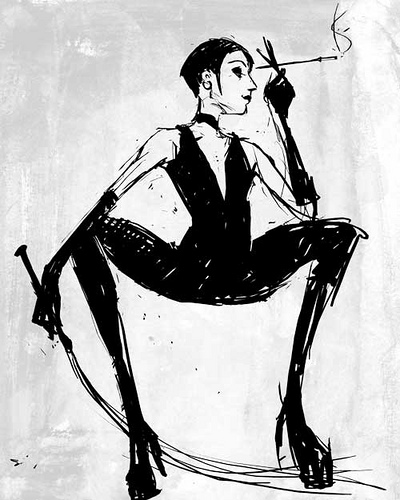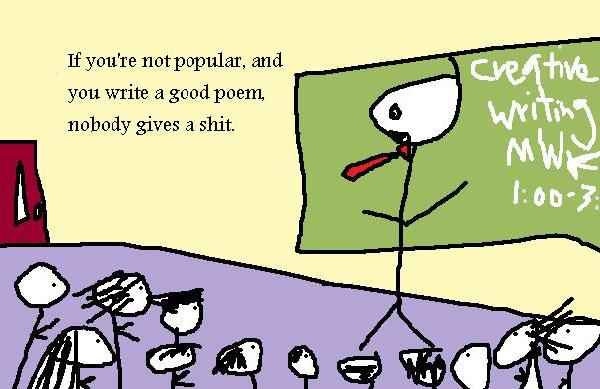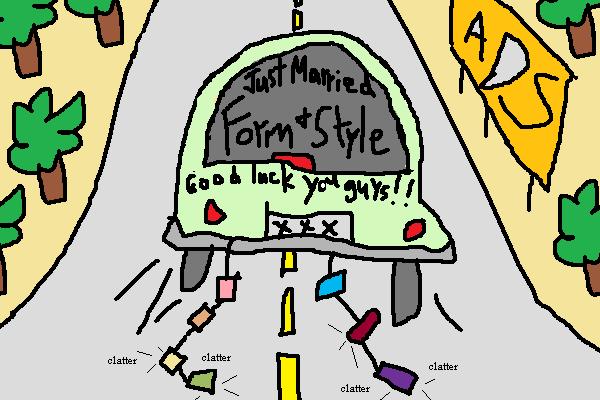You’re Not the Boss of Me

I teach Composition and Scientific & Technical Communication at a technological university which is a very interesting and fun challenge because the majority of the students at my university are not predisposed, at least in temperament, to the liberal arts.
As I grade student work, I often find myself offering students feedback by way of writing rules or myths I’ve long incorporated into my repertoire to guide them in revision, etc. Last night, as I labored over a fairly problematic stack of technical reports, I had to stop myself because I was feeling very uncomfortable about simply regurgitating the same old writing rules without really thinking through their merit.
A couple weeks ago, I had students read an article about Expressive Technical Writing as a means of introducing them to different avenues of scholarship in technical communication that go beyond the material traditionally taught in technical writing courses. After reading the article, the students wrote a brief reflection (without any specific guidelines from me) on what they thought about the idea of incorporating expressive writing into engineering communication. Sometimes when you ask students to write reflections they’ll turn in meandering Dear Diary type writing that is lacking a clear sense of purpose beyond, “I am writing this because I have no choice.”
I installed a doorstop today and wanted to post instructions in case anyone else needed help installing a doorstop. Email me if you have any questions or suggestions?
Youtube teaches me something about writing.
Let’s talk about flat affect in a writer’s tone. But first, let’s watch Beyonce:
httpv://www.youtube.com/watch?v=8mVEGfH4s5g
READ MORE >
criticism of criticism: think first and speak second–or not at all
adapted from a letter I wrote in an ongoing exchange I’ve been having with another writer/editor about the state of book reviews in the “online scene”…
This is a dynamic, emergent scene we’ve got going here, and we all learn on the job to some degree–me as much as anyone–but my baseline expectation is that if someone puts their work out into the public sphere, they are asserting that it belongs there, and are prepared for it to be judged against whatever else is out there already. Not in the sense of competition, but in the sense of discerning value–as in, I took the time to read this, what am I getting back for my time? What does this thing purport to do, and has it succeeded in doing so? I don’t think that’s too harsh a position to take, in fact it seems like the absolute bare minimum. (Our standards, probably, should be much higher than they are if we ever want to push ourselves beyond what we’ve already achieved–but we don’t have time to get into that right now.)
I think the real problem is that many people in our scene want to “review” because they want to be published, and the near complete absence of standards for reviews means you can pretty much always get a review “published” somewhere or other. But the people who write such “reviews” don’t have anything to say about a given book beyond “I liked it” or “this is my friend” or “this sucked.” I’m not sure if that’s because they actually can’t read critically, if they simply can’t articulate their thoughts, or if they’re simply disinclined to exert extra effort when the bar for achieving the “end goal” of publication on this or that website is so low it couldn’t possibly be out of reach–may possibly in fact have to be reached down for.
Or else people want to “review” books for the same reason they want to click the “like” icon under somebody’s facebook post. And I’ll be the first one to defend that kind of impulse. There’s a place for that. I write blog posts like that all the time. Sometimes it really is all that you want to say, or sometimes the work doesn’t warrant extended consideration. It’s there to be taken or left. But praising or damning a book is the work of a single sentence, paragraph at most. If the review is to be any longer–that is, if it is to truly *be* a review, it needs to do something more, or anyway, something else
Criticism and reviews are both meta-forms–if they don’t in some way amplify or complicate the subject of their focus, then they shouldn’t exist. So much of what passes for reviews or criticism that I read online seems not simply to fail to contribute to my understanding of the work under review, but actually to disrupt that understanding, or worse, to degrade the work. Put as simply and viciously as I can: a “reviewer”‘s windy, incoherent, sychophantic paean to the virtues of _______ is going to leave the reader (that is, the reader of the review) less inclined to read the work under review, because the work’s primary champion seems to be some kind of idiot. The drooling happiness of the idiot impresses nobody, and nobody wants to invest their money or time in the book that impressed the idiot. We understand this implicitly when we attack the NYT’s staff reviewers, so why is it so hard to see–and harder to still to call out–when its happening among our own ranks?
October 29th, 2009 / 12:08 pm
The Stupid Fucking “Tourist-Castle” Poem

The Tourist-Castle Poet Takes it !! (phase 1 of proposed torture)
I hate, I hate, I hate, I just fucking hate the stupid fucking Tourist-Castle poem.
Yes, I’ve just had it with this retarded, anemic variety of the Tourist poem. Almost all Tourist or Travel poems suck. But this one’s got super-human suction lips!
This poem is where some jackoff tourist (I borrow the word jackoff from Ted Berrigan talking about Irish Jackoffs trying to be radio waves at a St. Patrick’s Day parade), sits at a cafe or a park by a castle. Feels a glow. At peace. The most wonderful beautiful feeling ever. Like someone discovering the magic of sex. But worse! And then just has to write it down. In their notebook. Or, worse, on a napkin. Blah, blah.
These scourge poems invariably are titled something like:
“Lines Written at the Cafe Twimbledon across from the Castle Twimbledon, Twimbledon, Scotland, March 4, 2004” ……..(and if the poem WAS written on a napkin that makes it into the title too!
These poems are inevitable. Drop a novice poet in a foreign country and he’ll find a castle in two fucking seconds and the poem will be written, effortlessly, magically, on the spot (O Scourge!) and foisted on to some adoring public in some shitass review full of beautiful glowing Tourist-Castle poems. I’m just waiting for a review called The Tourist-Castle Review so I can bomb their fucking cars and offices.
Berrigan liked to beat people up. He liked Michaux for this same reason. I invoke you both now gentlemen: your fists and your swords and your delicate medieval torture instruments. And let’s push these fucking tourist poets down into the basements of the castles they so glowingly and sickeningly sang about. And let’s rack them and sack them and quarter them and make them eat thousands and thousands of Tourist-Castle Poems. And let’s suck the bowels from their asses with contraptions built especially for the purpose. Or, for lack of availability or simply for variety, a starving street rat.
Another kind of innovation?

How many kinds of innovation are there available to a writer? Quite a few, I think. Here’s something from the first pages of Flann O’Brien’s The Third Policeman:
My mother I can recall perfectly. Her face was always red and sore-looking from bending at the fire; she spent her life making tea to pass the time and singing snatched of old songs to pass the meantime. I knew her well but my father and I were strangers and did not converse much; often indeed when I would be studying in the kitchen at night I could hear him through the thin door to the shop talking there from his seat under the oil lamp for hours on end to Mick the sheepdog. Always it was only the drone of his voice that I heard, never separate bits of words. He was a man who understood all dogs thoroughly and treated them like human beings. My mother owned a cat but it was a foreign outdoor animal and was rarely seen and my mother never took any notice of it.
The 2nd Outlet
 Blake, famously, illustrated his poems. Henri Michaux was an accomplished and renowned artist as well as a “master” prose poet. Archie Ammons painted (my friend Brian Clements owns a bunch of originals). Flannery O’Connor too. And she recommended it for writers.
Blake, famously, illustrated his poems. Henri Michaux was an accomplished and renowned artist as well as a “master” prose poet. Archie Ammons painted (my friend Brian Clements owns a bunch of originals). Flannery O’Connor too. And she recommended it for writers.
And I recommend “it” too. And by “it” I mean some other form of creativity besides writing. “Real” writing (ha ha). Even blogging (??) can be this 2nd outlet of creativity.
I draw and smear around on paper. And take photos of it. And I find it quite rewarding. And in some way(s) I am sure this enhances and complements my writing.
But, as with anything else (wine, women, werewolves, etc) the 2nd creativity can become too much. An obsession. A distraction. (Blogging !!!!)
I’m not sure how successful I am in keeping the different disciplines in good check but one solution for me is to write and smear at different times of the day. And, in general, to just keep an eye on the situation.
I’m guessing that many of yall have a 2nd creative outlet and wanted to know how you keep it useful without it becoming a harmful distraction ? (that being said some writers may well be better artists or whatnot and, so, the 2nd creative outlet SHOULD take over…..)
A fine piece of misdirection
httpv://www.youtube.com/watch?v=GZy277zUECk
I’m only passingly familiar with the work of Steven Jesse Bernstein. I heard “The Man Upstairs” on this week’s (October 16) episode of Over the Edge from Don Joyce of the band Negativland, and searched to find the piece isolated from the bed of ambient noise and audio collage—the stop, start, rewind, replay nature of Over the Edge.
Here’s a transcription of the piece. It was found on this website: READ MORE >
October 21st, 2009 / 6:53 pm


